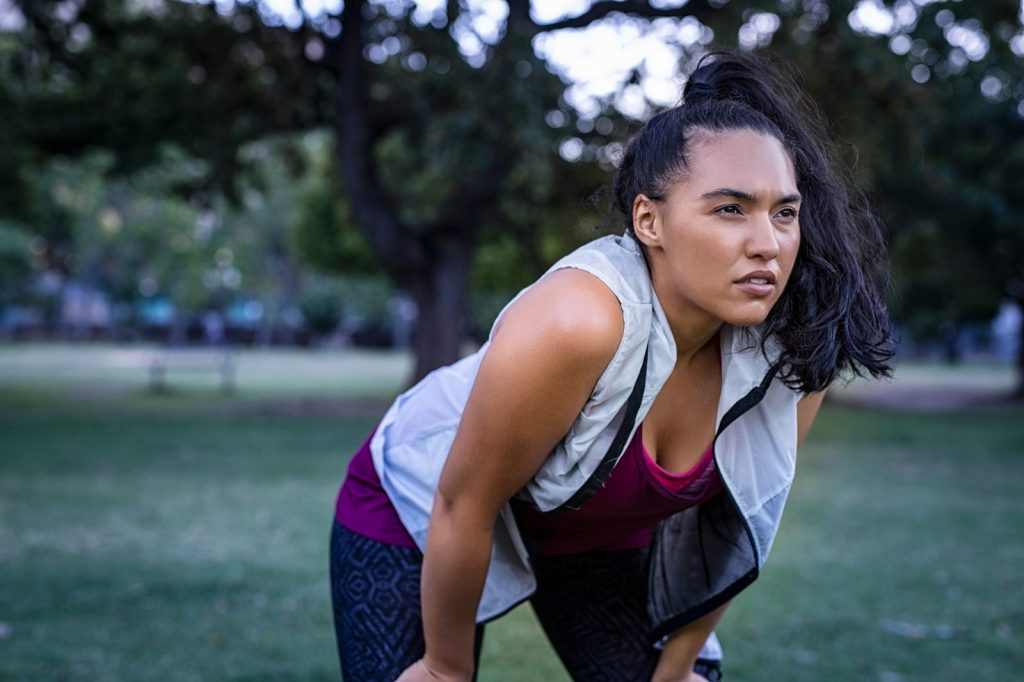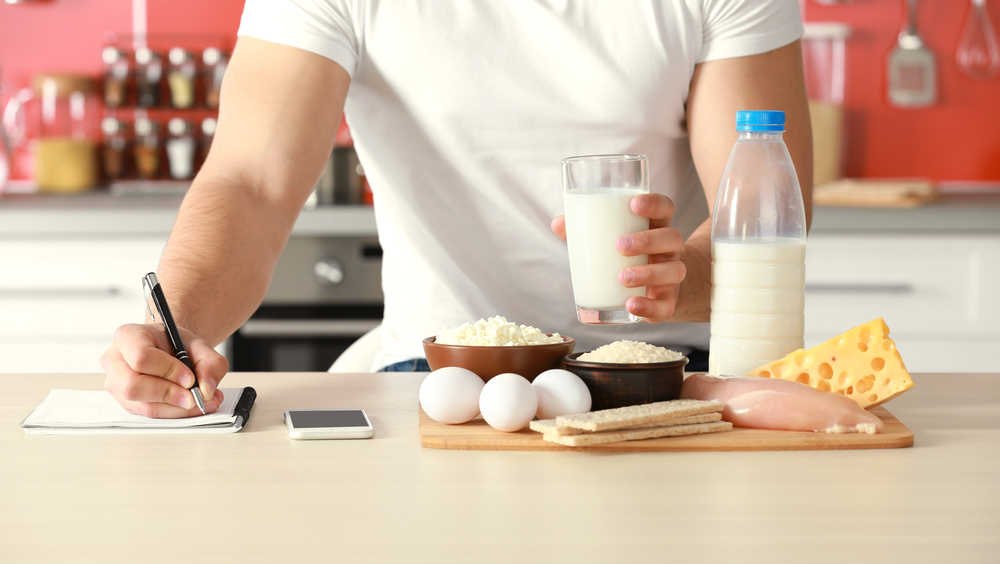
Your only competition is yourself; how to get the most out of your 24 hours a day
“Comparison is the thief of joy” Theodore Roosevelt
True that Teddy.
It can sometimes be difficult to avoid comparing ourselves to others; particularly if our social media feeds are full of filtered, photoshopped and seemingly ‘perfect’ people living their #bestlife. Comparing yourself to others is the easiest way to lose focus and distract yourself from your goals, leaving you feeling less ‘worthy’ or doubting yourself and your abilities. As human beings, the best favour we can do for ourselves is to remain focussed on our own personal goals and driven by our own definition of success and happiness. There will always be someone seemingly more wealthy or successful, more attractive, with a better body, stronger or faster – but they will never be YOU and that is your power. In order to be the best possible version of yourself, you need to stop comparing yourself to others, believe in yourself and focus on your goals!
So, how we do get out of this unavoidable self-esteem trap without scrapping our social media entirely? Focus on yourself! The amount of time we spend looking at the lives of others can not only be damaging to our self-esteem, but may also be detrimental to reaching our full potential. Studies have shown the negative effects that social media can have on our mental health and self esteem (6, 9), so actively try to reduce the time you spend on your socials. Whatever your personal goals may be; career-driven/lifestyle/fitness, in order to push ourselves and achieve those goals, we must first and foremost believe in ourselves. By spending our free time looking at the lives of others through rose-tinted filters, all we are doing is furthering ourselves from achieving our own success and living a full, happy life. Planting seeds of self-doubt and feelings of inferiority is a sure-fire way to stopping success in its tracks.
Whatever your personal goals may be; career-driven/lifestyle/fitness, in order to push ourselves and achieve those goals, we must first and foremost believe in ourselves. By spending our free time looking at the lives of others through rose-tinted filters, all we are doing is furthering ourselves from achieving our own success and living a full, happy life. Planting seeds of self-doubt and feelings of inferiority is a sure-fire way to stopping success in its tracks.
We all have the same 24 hours in a day; that’s to eat, work, socialise, exercise, relax and sleep. So, how is it that some people manage to cram far more in this window of time and achieve more than others? This all comes down to productivity and how we optimise the time we have. So, it’s time to stop hoping for good fortune or success and start making it happen. Follow these steps to start making the most of your 24 hours a day.
1. Get S.M.A.R.T
Getting your personal goals down on paper is one of the simplest ways to stay in touch with your own purpose and see where you’d like to be within any given time frame – be it a week, 6 months, a year! While it’s important to be ambitious, start by giving yourself mini-goals that are attainable and within reach. The feeling of accomplishment you get when you can cross them off your list will not only fill you with confidence and pride, but keep your focus ignited and spur you on further. A good way to increase your chances of achieving your goals is to keep them S.M.A.R.T – Specific, Measurable, Active, Realistic, and Timed. Research has consistently shown that writing down your goals dramatically increases your chances of achieving them. So, get that pen and paper at the ready.
2. Count your blessings
Grateful people are happy people. Whilst you may not be sunning yourself on a yacht in the South of France; you will undoubtedly possess qualities that other people could only wish they had. No matter what material possessions or physical attributes someone else may have, they will never be YOU. Studies have shown that if you purposefully increase your feelings of gratitude, you will naturally increase your happiness (8).
It can be easy to fall into a ‘poor-me’ mindset when comparing your life to others, but keep in mind that for every person you think is more privileged or fortunate than you; there will always be far more people less fortunate who wish they had your life. Gratitude is a wonderful quality to have and can help you significantly in life – leading a full and happy life.
3. Bookworm
Reading is an incredibly beneficial use of your time. Reading for just 6 minutes a day can reduce stress by a staggering 68 Percent! A 2009 study by the University of Sussex found that reading for just 6 minutes is even more effective than other relaxation methods such as listening to music (5). This is because when we read, our minds enter an unfamiliar literary world that removes us from the stressors of our everyday lives. Reading has also been shown to be linked to success. An American study found that readers are more likely to be employed and have higher incomes than non-readers (5). So rather than spending your commute or pre-bedtime routine scrolling; get stuck into a good book and reap the benefits – even if it’s just for 6 minutes.
4. Take a break for a walk
Having a break from your desk or work environment to go for a walk has countless benefits, particularly if this is after you’ve eaten your lunch. Researchers have found that going for a short walk of just 10-15 minutes after eating is not only beneficial for digestion, but also helps in maintaining healthy blood sugar levels. Not only that, but going for a walk after eating has been shown to be more effective for weight loss than waiting for an hour after eating – even more incentive to take your lunch hour outside of the workplace and on the move! Having a break to walk outside also boosts energy, mood and focus, so you can go back to work feeling refreshed and ready to tackle the second half of your day (4).
5. Morning glory
With less distractions in the AM, getting up a bit earlier could potentially prove to be the most productive part of your day. Apple’s CEO Tim Cook is known for waking up early and sending out company emails at 4:30AM… woah. Don’t worry, we’re not suggesting you follow suit entirely; but giving yourself an extra 30-60 minutes in the morning allows you to get things done that would otherwise take twice as long later in the day with other distractions, people, commitments and notifications getting in the way. You will also remove additional and unnecessary stress that comes with rushing to get out of the door by giving yourself more time to prepare for the day ahead in a much more relaxed and positive frame of mind. People who get up early are naturally sleepier when it’s the “normal” time to go to bed. Being on a predictable routine will also help you sleep better each night and wake feeling more rested; So, give it a try and resist that snooze button!
6. Exercise
Aside from the physical benefits gained from training; making exercise a part of your day can help you feel more energised, improve your attention span and elevate your mood. Exercise also increases brain activity and leaves you feeling more driven and ready to face the challenges of the day ahead. If you’re feeling demotivated or don’t know where to start; try aiming for 10,000 steps a day and go from there (3). There are also countless free apps available for beginners that help to build your fitness levels. If you fit your exercise in during your lunch hour as mentioned previously, this not only will benefit your health and cognitive function, but also leave you with more time to do other things, where you would have otherwise been fitting in exercise before or after work. Most gyms hold classes between 12-2 to cater for people exercising in their lunch hour so give it go and you’ll be sure to feel the benefits!
7. Healthy breakfast
It’s known as the most important meal of the day for good reason! One of the most appealing benefits of eating breakfast is that it kick starts your metabolism so as a result, you burn more calories throughout the day. When we eat breakfast, we send a message to our body that we have consumed plenty of calories to fuel us for the day. However, when we skip breakfast, the message we send our body is that we need to conserve any incoming calories rather than burn them. As a result, whilst people who skip breakfast may consume slightly fewer calories throughout the day, they tend to have a higher body mass index (BMI) as their metabolism is slower and burns less calories (2). When we are hungry, we also tend to crave foods that are high-sugar and high-fat. If you skip breakfast because you’re short of time, plan ahead for something you can take to work with you such as our TPW Breakfast Fuel to keep your body and mind fueled and your metabolism firing on all cylinders!
8. Hit the sack before the AM
We’ve probably all heard the old adage “every hour of sleep before midnight is worth two after midnight”. Well, there’s no pumpkin-like magic occurring once the clock strikes twelve; however, there are benefits to be gained by going to bed before the AM. The time of night you sleep does make a significant difference to the quality and structure of your slumber. Our sleep is composed of a series of 90-minute cycles, during which our brains move from deep sleep to non-rapid eye movement (non-REM) sleep to REM sleep. That cycle remains fairly stable throughout the night, however the ratio of non-REM to REM sleep alters.
Non-REM sleep tends to dominate sleep cycles in the earlier part of the night. Once the clock starts to creep towards daylight, REM sleep takes over. This is important because some research has shown that non-REM sleep is much deeper and regenerative than lighter REM sleep (during which we dream), meaning we recharge much more effectively during non-REM sleep. So, if you hit the hay in the early hours, say 2AM, your sleep will shift towards lighter, dreamier REM-heavy sleep. This means you may be left feeling groggy and a bit ‘merh’ the next day due to the lack of deep, regenerative sleep (1).
So, when it comes to bedtime, there is an optimum window of time between 8 PM-12AM. During this time our brain and body have the chance to get all of the non-REM and REM sleep they require to function optimally. This being said, we are all different and feel sleepier at different times of the evening, so it’s recommended to experiment with going to bed at different times and use your sleepiness as a gauge to find your best sleeps-slot. It’s no problem to have a bit of a lie-in on your days off however if your usual wake-up time is 6:00 AM and you don’t roll out of bed until 10 onwards of a weekend, this will throw off your body’s sleep rhythm and make it more difficult to get back into your routine once Monday comes back around. So, try to find a sleep-slot that works for you, it might take a few attempts but it is possible to train your body to develop a sleep rhythm.
The Take Home:
Your only competition truly is yourself, so avoid comparing yourself to others, remain focussed on yourself and your life will consistently continue to improve. Dreams won’t work unless you do, so try these tips to get the most out of your 24 hours a day and you’ll be achieving your goals in no time.
Reference list
- A. Insogna, Jessica & Reid, Ryan & M. Comptour, Andrea & A. Bewski, Nicole & D. Sciortino, Cristina & Sweet, Shane & Andersen, Ross. (2015). Effects of Total Sleep and Sleep Before Midnight on Activity Levels in Female University Students.
- Min, Chanyang & Noh, Hwayoung & Kang, Yun-Sook & Jin Sim, Hea & Baik, Hyun & Song, Won & Yoon, Jihyun & Park, Young-Hee & Joung, Hyojee. (2011). Skipping breakfast is associated with diet quality and metabolic syndrome risk factors of adults. Nutrition research and practice. 5. 455-63. 10.4162/nrp.2011.5.5.455.
- Hart, Jane. (2009). The Health Benefits of Walking. Alternative and Complementary Therapies. 15. 7-10. 10.1089/act.2009.15105.
- Hijikata, Yasuyo & Yamada, Seika. (2011). Walking just after a meal seems to be more effective for weight loss than waiting for one hour to walk after a meal. International journal of general medicine. 4. 447-50. 10.2147/IJGM.S18837.
- Kirsch, I., Jungeblut, A., Jenkins, L. and Kolstad, A. (2002). National Adult Literacy Survey. [ebook] Available at: https://nces.ed.gov/pubs93/93275.pdf
- Royal Society for Public Health and Young HealthMovement. #StatusOfMind: Social media and young people’s mental health and wellbeing. https://www.rsph.org.uk/uploads/assets/uploaded/62be270a-a55f-4719-ad668c2ec7a74c2a.pdf
- Taking Charge of Your Health & Wellbeing. (2019). Reading for Stress Relief | Taking Charge of Your Health & Wellbeing. [online] Available at: https://www.takingcharge.csh.umn.edu/reading-stress-relief
- Tomás, Caycho-Rodríguez. (2015). Relations Between Gratitude and Happiness in University Students of Metropolitan Lima. 10.13140/RG.2.1.2118.6009.
- Wiederhold, Brenda. (2018). The Tenuous Relationship Between Instagram and Teen Self-Identity. Cyberpsychology, Behavior, and Social Networking. 21. 215-216. 10.1089/cyber.2018.29108.bkw.






No Comments yet!